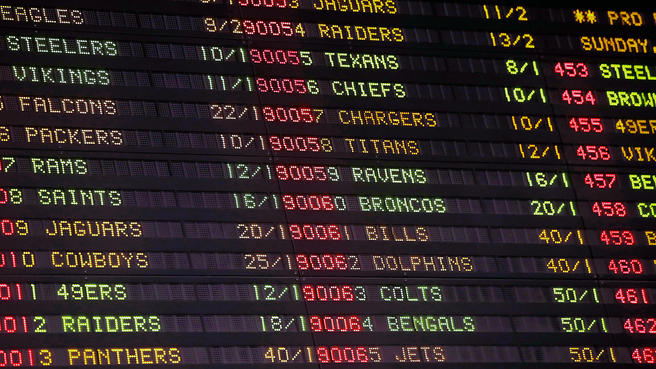
One of the big questions that many in the online poker community ask is, “Why isn’t online poker accepted by states that have sports betting?” You may think the answer is complex, but it is can be traced back to a simple explanation. According to reports from the states themselves, their tax revenues are flooding the state coffers and bringing much-needed resources to the individual states.
Record sales in sports betting in November
According to Gaming Intelligence North America, the US gaming market broke records in November. In November alone, the US sports betting industry grew to $561.3 million, an increase of 22%. Four states in particular were leaders, and they may not be the usual suspects you would think of.
At the forefront of the US sports betting industry was the state of Michigan, perhaps boosted by major sporting events centered around the (now) National Champion University of Michigan Wolverines. The Wolverine State became the first state to reach $175 million in revenue. There are four major sports betting providers in Michigan: FanDuel, DraftKings, BetMGM and Caesars Sportsbook.
Just behind Michigan was the state where it all began: New Jersey. The first state to open for sports betting following the 2018 U.S. Supreme Court decision striking down the law protecting professional and amateur sports, New Jersey recorded revenue of $171.6 million, the first time the state broke the $170 million mark.
The good news was not limited to these two states. Pennsylvania rose 13%; West Virginia saw a 25% increase, while Massachusetts saw $4.97 billion bet in 2023 (the first year of activity).
All about the Benjamins
Currently, 38 states in the US offer sports betting to their voters. Of these 38 states, 26 offer online sports betting where bettors can place their bets via their computer or mobile phone. Sports betting has become THE way for state governments to generate additional revenue without having to raise taxes on their constituents.
However, online poker has not seen the same outpouring of support. Only seven states – Nevada, New Jersey, Delaware, Pennsylvania, Michigan, West Virginia and Connecticut – have online poker regulations. Connecticut is particularly intriguing in that while it has regulations for online poker, no operator has currently come forward to offer it.
Why? Part of the problem with poker is that you need to have a large customer base – liquidity – in order to offer the product. This is especially true for online play, and in smaller states like West Virginia and Connecticut, the population is not large enough to justify opening online poker operations. Delaware would also be in this situation if it had not joined the Multi-State Internet Gaming Agreement (MSIGA), which allows them to pool players with the other member states (Nevada, New Jersey and Michigan) to build a larger player base.
While many would like to see online poker become a more accessible option across the states, the likelihood of that happening is slim – unless states participate in the MSIGA. Only a handful of states are large enough to go “alone” with online poker (California and Texas are a pair), while many states have bettors willing to wager on sports, be it online, live, or both .
